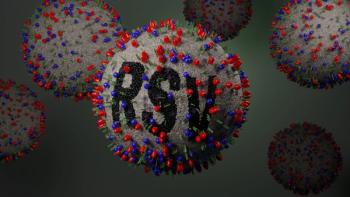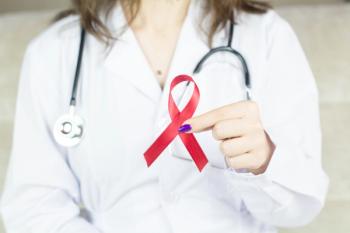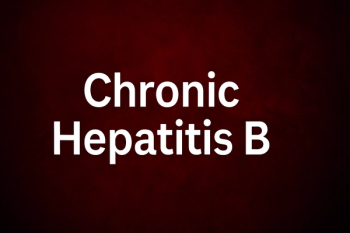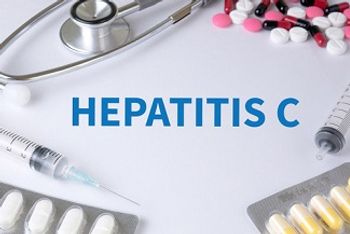
Lori Handy, MD, MSCE, emphasized that rebuilding public trust requires continuous engagement and a collective rethinking of medical communication.

Lori Handy, MD, MSCE, emphasized that rebuilding public trust requires continuous engagement and a collective rethinking of medical communication.

Phase 3 results for tebipenem HBr suggest an oral carbapenem could provide an effective alternative to IV therapy for multidrug-resistant UTIs.

A systematic review presented at IDWeek 2025 found that pneumococcal serotypes unique to Merck’s 21-valent conjugate vaccine, Capvaxive, are more prevalent among US adults and show higher rates of antibiotic resistance compared to those unique to PCV20.

At IDWeek 2025, Lori Handy, MD, MSCE, discussed how clinicians can strengthen vaccine communication by engaging openly and partnering with trusted community messengers.

Researchers say affordable lenacapavir could transform global HIV prevention efforts amid rising infection rates.

Invivyd’s Chief Scientific Officer Robert Allen, PhD, provides insights on the company's investigational monoclonal antibody, VYD2311, as well as its REVOLUTION clinical program.

George Sakoulas, MD, discusses how updated guidelines recommend shorter antibiotic courses (5 to 7 days) for patients with pneumonia, emphasizing that early aggressive treatment within the first 72 hours is crucial for reducing hospital stays and improving patient outcomes.

Findings from the ongoing ROAR registry show that fecal microbiota, live-jslm (RBL), maintains strong efficacy and safety in preventing recurrent Clostridioides difficile infection (rCDI) in routine US clinical practice.

Nicholas P. Marshall, MD, FAAP, discussed how generative AI can help streamline infectious disease workflows and enhance evidence-based care at IDWeek 2025 in Atlanta.

IDWeek Chair, Infectious Diseases Society of America, Yohei Doi, MD, provides some insights on the happenings at this year’s event.

Combined or individual use of maternal RSVpreF and infant nirsevimab achieved high antibody levels without safety concerns, supporting current RSV prevention strategies.

A nationwide analysis found that more than 1,500 additional HIV specialists are needed—particularly in the south—to meet national HIV care targets, underscoring major geographic and socioeconomic disparities in provider access.

New 96-week results from the study show that Dovato is as effective as Biktarvy in maintaining viral suppression in adults with HIV, while leading to less weight gain and fewer drug-related adverse events.

This week, learn about the Center for Discovery and Innovation's research around vaccines and the next generation of rifamycins, as well as results from a Cefiderocol study looking at healthcare-associated Gram-negative bloodstream infections and more.

FDA clearance paves the way for Invivyd to launch 2 phase 3 trials of VYD2311, a monoclonal antibody designed as a safe, convenient, vaccine alternative for COVID-19 prevention.

NIH funds an effort to adapt an electrochemical biosensor for same-visit detection and viral-load quantification at the point of care.

The Phase 3 PRIOH-1 trial demonstrated that pritelivir, a first-in-class helicase-primase inhibitor, achieved statistically superior lesion healing compared to standard therapies, offering a promising new oral treatment option for immunocompromised patients with refractory HSV infections.

Veronique Dartois, PhD, and Thomas Dick, PhD, discuss the multidrug resistance associated with non-TB mycobacteria and their research, which focuses on developing a novel version of this class of antibiotics for these infections.

Initial findings from the phase 1 CLARITY study offer the first direct comparison of the acceptability and tolerability of single-dose cabotegravir and lenacapavir long-acting injections in HIV-negative adults, revealing differences in patient and health care provider preferences.

A UK hepatology review found that one-third of adults with chronic hepatitis B were lost to specialist follow-up—highlighting major gaps in patient retention that threaten progress toward WHO’s 2030 viral hepatitis elimination goals.

A 4-week course of glecaprevir/pibrentasvir achieved sustained virologic response in 84% of patients with early hepatitis C infection in the PURGE-C trial, suggesting potential for shorter, more accessible treatment regimens pending further validation.

George Sakoulas, MD, discusses how ceftaroline serves as an effective stewardship-aligned option for community-acquired pneumonia involving gram-positive organisms, particularly in older and high-risk patients, while noting its limitations in gram-negative and health care–associated infections.

Barry Kreiswirth, PhD, discusses how taking an approach similar to that for streptococcal pneumonia can be applied to a potential Klebsiella vaccine.

John Osiecki, PhD, explains how faster, standardized testing can speed detection and strengthen antimicrobial stewardship.

Cefiderocol is noninferior to standard of care empiric treatment of noscomial Gram-negative bloodstream infections in open-label "Game-Changer" trial.

This week, learn about the Center for Discovery and Innovation's research around antivirals, the hepatitis C bill in Congress, how AI is influencing antimicrobial development, and more.

The Center for Discovery and Innovation’s Barry Kreiswirth, PhD, discusses this emerging challenge that is ongoing in both the community and healthcare settings, especially around resistant urinary tract infections and how this type of resistance can grow exponentially across strain and pathogens.

AI predicted mechanism of action for investigational, narrow spectrum antibiotic against pathogens in Crohn's disease and IBD-related conditions.

David Perlin, PhD, chief scientific officer and executive vice president, the Center for Discovery and Innovation (CDI), talks about his team’s work around developing a diagnostic for Candida auris, and what they are working on in terms of developing antifungals.

The company is advancing R327G, a novel synthetic anti-infective for diabetic foot infections, through a phase 3 clinical trial in Indonesia, marking a major step toward the first new anti-infective class approval in over 40 years.